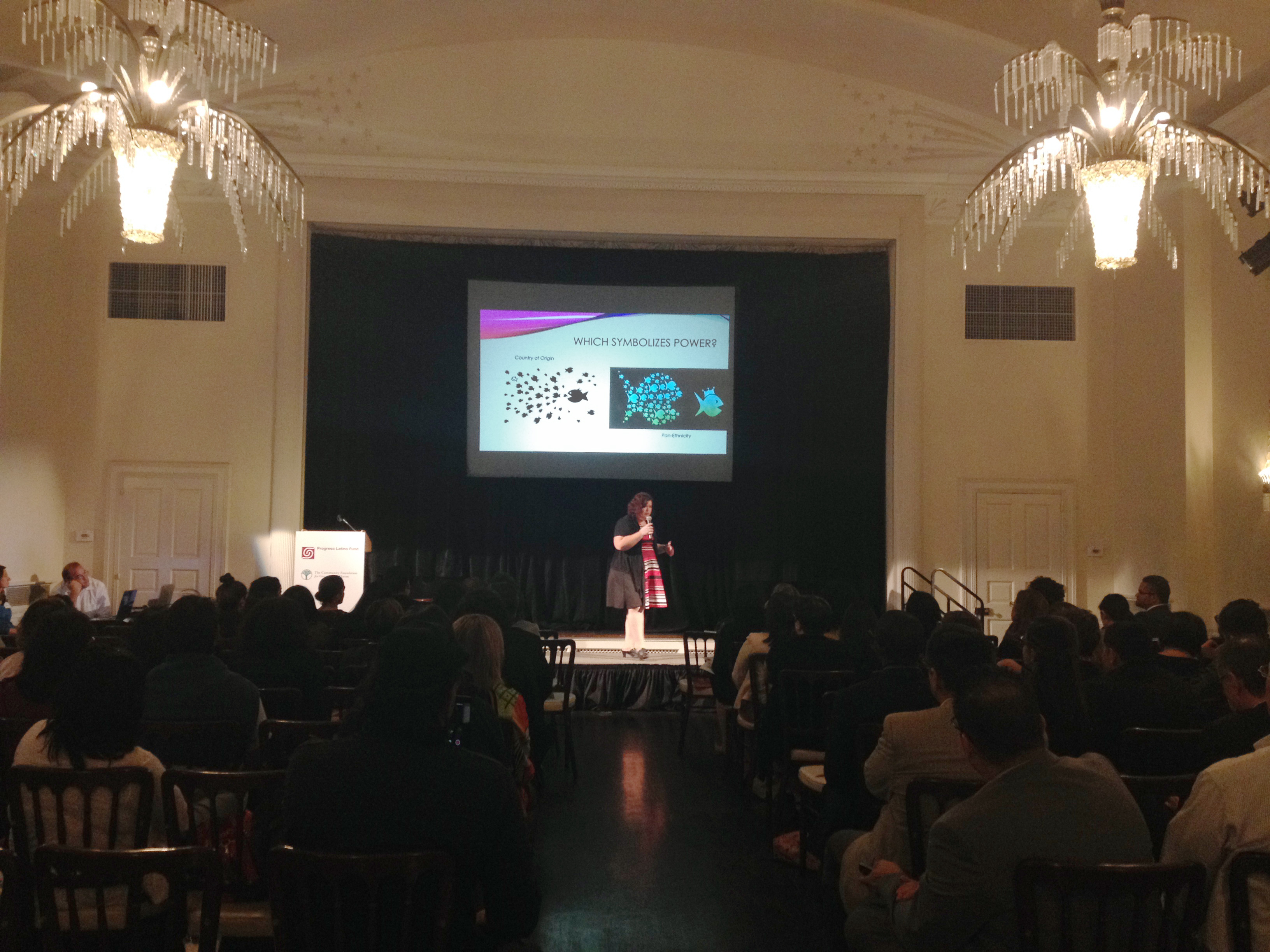
Discussions of Latino pan-ethnic political power filled the New Haven Lawn Club at a forum on Wednesday evening.
At the event, Pace University professor Jessica Lavariega Monforti addressed a crowd of roughly 100 New Haven residents and Progreso Latino Fund members to discuss the strengths and trends of Latino political identity. The forum was hosted by the Progreso Latino Fund, a group funded by The Community Foundation for Greater New Haven to promote the educational and socio-economic well-being of Latinos in New Haven.
“Instead of fighting together to uplift the entire Latino community, we are fighting each other for crumbs,” Lavariega Monforti said.
At the start of Lavariega Monforti’s presentation, she discussed identity-focused terms such as “Latino” as well as “Mexican-American,” “Cuban-American” and other country-focused terms. She then asked audience members to vote via their cell phones for the identity they felt best represented them.
She explained that many Latinos prefer to identify themselves by their country of origin rather than with pan-ethnic terms like Latino and Hispanic. Lavariega Monforti, a native New Yorker whose parents are Cuban and whose husband is Mexican, said there is power in identity, adding that how one chooses to identify has political consequences.
She said Latinos have, to varying degrees, supported Democratic nominees for president since 1980 and have similar priorities for political policy. Roughly 55,000 Latinos turn 18 every month in the United States, and many Latinos are seeking naturalization in anticipation of the presidential election, according to Lavariega Monforti.
Throughout the presentation she encouraged audience members to recognize their common ground and use it to wield political power.
“You have five fingers,” she said. “They all work but they are stronger when you use them together in a fist.”
Lavariega Monforti also discussed the blanketing of Latinos in the United States. Although Latinos come from many countries and have a plethora of different physical features, they are often all assumed to be Mexican or Puerto Rican, the two most represented groups in the U.S. as of the 2010 census, she said. Although she encouraged working as a group for political desires, she said she was not encouraging the homogenization of Latino cultures.
The event was especially relevant so close to the 2016 presidential election, said Khalilah Brown-Dean, associate professor of political science at Quinnipiac University and a member of the board of The Community Foundation for Greater New Haven, who introduced Lavariega Monforti. But the need for community-based leadership will continue long after a new president is chosen, Brown-Dean said.
At the end of the talk, Lavariega Monforti repeated her poll. This time, an overwhelming majority of the audience chose to identify themselves with pan-ethnic terms.
Among the attendees was Meriden resident Liz Espinosa, who comes from a Puerto Rican family, and said the presentation permanently altered how she will identify herself in the future.
“I was one of the attendees who identified as white, but because of the information I received tonight, from now on I will use Latina,” she said.
Director of Development and PLF staff liaison at The Community Foundation Sharon Cappetta said the Progreso Latino Fund has been hosting forums at least once a year for over ten years. The forums are based on contemporary issues of interest to Latinos in the area and state. The fund is also set to publish a series called “Celebrating Latino Leaders” to highlight leaders in the greater New Haven region, she added.
The Community Foundation for Greater New Haven was established in 1928.
Interested in getting more news about New Haven? Join our newsletter!







